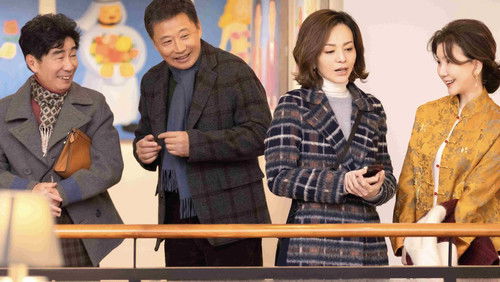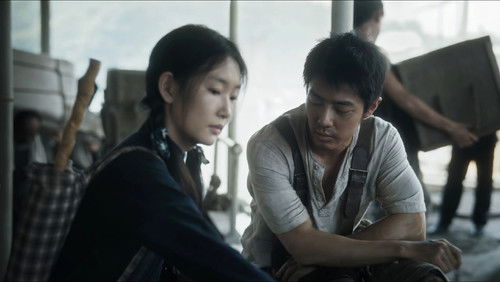Mères et filles (2009)
18KMères et filles (2009). 1h 45m
“Before screening u0026quot;Mères et fillesu0026quot; I had seen only one of the four films signed Julie Lopes-Curval and I did not expect the shock I experienced here. All I remember of u0026quot;Bord de meru0026quot; (2002) is a moody stagnant atmosphere, good acting, the importance of women in the story and a seaside location. Sure the apple doesnu0026#39;t fall far from the tree and there are common points in the writer-directoru0026#39;s world: the seaside place (here, the Arcachon Basin has replaced the Bay of Somme), the all-importance of women (even more obvious in u0026quot;Mères et fillesu0026quot;) and excellent acting (Bulle Ogier, Ludmila Mikaël, Hélène Fillières, Jonathan Zaccaï in the first film; Catherine Deneuve, Marina Hands, Marie-Josée Croze, Michel Duchaussoy in the second). But u0026quot;Bord de meru0026quot;, although the sensitive account of small town life, did not generate much enthusiasm. By comparison, u0026quot;Mères et fillesu0026quot; , a striking description of a dysfunctional family, proves much more powerful: it moves you deeply – even upsets you – while, thanks to a brilliantly structured screenplay, it keeps you glued to your seat throughout. And that is not all, for the film also functions on the symbolic level. Indeed, telling a story that concerns granddaughter, mother and grandmother allows Lopes-Curval to reflect on the condition of women the day before yesterday, yesterday and today. How does Julie Lopes-Curval manage to achieve such a feat? Through talent of course (she has made much progress since 2002), through the choice of the ideal actors and finally through an apparently simple but actually complex script. u003cbr/u003eu003cbr/u003eu0026quot;Mères et fillesu0026quot; tells the story of Audrey (Marina Hands, unaffected and intense), pregnant and living in Canada, who visits her parents (Catherine Deneuve, aggressive and disturbed; Michel Duchaussoy, easy-going and understanding) in the seaside town where she was born. Finding it hard to put up with her mother, Audrey settles in the house of her grandparents. There she discovers the diary once written by her grandmother Louise (Marie-Josée Croze, whose restrained performance makes her character all the more moving). Audrey then comes to learn the story of this woman who gave up her family, left, and never returned. Determined to know the truth she causes a crisis in the family. u003cbr/u003eu003cbr/u003eJulie Lopes-Curvalu0026#39;s story is in no way exceptional and had it been told in flash-backs, it might have been just another film but u0026quot;Mères et fillesu0026quot; plays in another league.Where it breaks new ground it is by making the scenes in the past the figment of Audreyu0026#39;s subjectivity. As a result, whenever we think we know the truth, this u0026quot;truthu0026quot; is challenged until another one is revealed, and so on until the final revelation. Such a device makes the film exciting from the beginning to the end and prevents it from remaining dryly theoretical or boringly gushy.u003cbr/u003eu003cbr/u003eAmazingly well played (Deneuve, for instance, is at her best as Martine, a doctor who can support her patients but is unable to sympathize with her loved ones), very realistic (by way of example, the rows between Deneuve and Hands ring terribly true) and relevant (my own mother went through an ordeal similar to Louiseu0026#39;s in the nineteen fifties with a husband who killed her slowly), u0026quot;Mères et fillesu0026quot;, is a success in every department and is -it goes without saying – recommended.”









